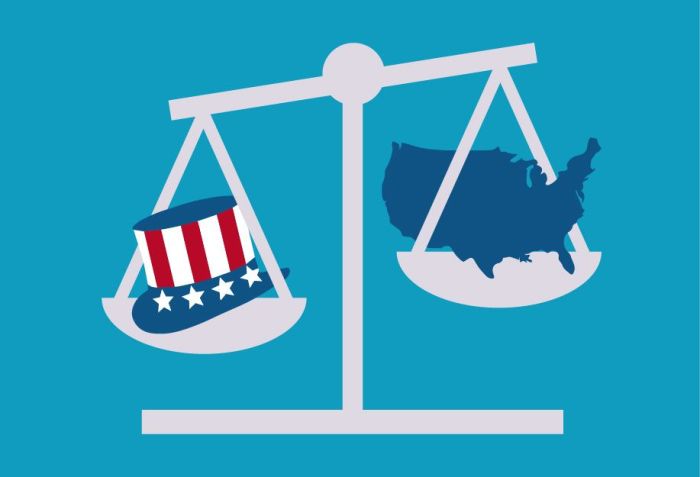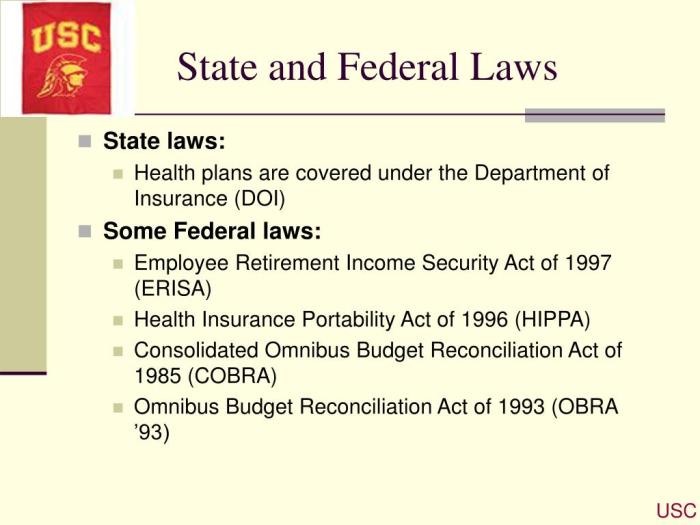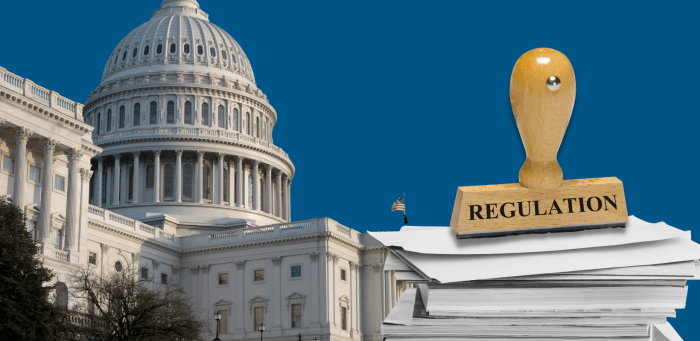Federal and state laws that regulate the hts – Federal and state laws that regulate the transportation of hazardous materials are essential for ensuring public safety and environmental protection. These laws impose strict requirements on shippers, carriers, and drivers to handle and transport hazardous materials safely and responsibly. This article provides a comprehensive overview of the key provisions of federal and state HTS laws, highlighting the differences between them and discussing emerging trends and best practices for compliance.
Overview of Federal and State Laws Regulating Hazardous Transportation (HTS)
Federal and state laws govern the transportation of hazardous materials (HTS) to protect public safety and the environment. These laws aim to ensure that HTS are handled, transported, and disposed of safely and securely.
The primary federal law regulating HTS is the Hazardous Materials Transportation Act (HMTA). The HMTA establishes a comprehensive framework for the safe transportation of HTS, including requirements for packaging, labeling, documentation, training, and emergency response planning.
In addition to the HMTA, there are numerous other federal regulations that govern specific aspects of HTS, such as the Pipeline Safety Act, the Transportation Security Administration’s regulations, and the Environmental Protection Agency’s regulations.
States also have their own laws and regulations governing HTS. These state laws often mirror the federal requirements, but they may also include additional provisions specific to the state.
Agencies Responsible for Enforcing HTS Laws
The primary federal agency responsible for enforcing HTS laws is the Pipeline and Hazardous Materials Safety Administration (PHMSA). PHMSA is a part of the U.S. Department of Transportation (DOT).
In addition to PHMSA, other federal agencies, such as the Federal Motor Carrier Safety Administration (FMCSA), the Federal Railroad Administration (FRA), and the Transportation Security Administration (TSA), also have roles in enforcing HTS laws.
At the state level, the enforcement of HTS laws is typically the responsibility of the state’s department of transportation or environmental protection agency.
Key Provisions of Federal and State HTS Laws: Federal And State Laws That Regulate The Hts

Packaging and Labeling Requirements
Federal and state HTS laws require that HTS be packaged and labeled in a manner that ensures their safe transportation. The packaging must be strong enough to withstand the rigors of transportation and must be properly labeled to identify the contents and the associated hazards.
Transportation Documentation, Federal and state laws that regulate the hts
Shippers and carriers must prepare and maintain documentation that accompanies HTS shipments. This documentation must include information about the contents of the shipment, the shipper and carrier, and the destination.
Driver Training and Certification
Drivers who transport HTS must be trained and certified in accordance with federal and state laws. This training must cover topics such as the safe handling of HTS, emergency response procedures, and the use of safety equipment.
Emergency Response Planning
Shippers and carriers must develop and implement emergency response plans that Artikel the steps to be taken in the event of an HTS incident. These plans must include procedures for notifying authorities, evacuating personnel, and mitigating the effects of the incident.
Differences Between Federal and State HTS Laws
While federal and state HTS laws share many similarities, there are some key differences between the two. These differences include:
- Scope:Federal HTS laws apply to all HTS shipments that cross state lines. State HTS laws typically apply only to HTS shipments within the state.
- Requirements:Federal HTS laws establish minimum requirements for the safe transportation of HTS. State HTS laws may impose additional requirements that are more stringent than the federal requirements.
- Enforcement:Federal HTS laws are enforced by PHMSA and other federal agencies. State HTS laws are enforced by state agencies.
It is important to note that shippers and carriers must comply with both federal and state HTS laws. In cases where there is a conflict between federal and state laws, the more stringent requirement must be followed.
Compliance with Federal and State HTS Laws

Shippers, carriers, and drivers must take steps to comply with federal and state HTS laws. These steps include:
- Choosing the right packaging and labeling:Shippers must choose packaging and labeling that meets the requirements of federal and state HTS laws.
- Preparing transportation documentation:Shippers and carriers must prepare and maintain documentation that accompanies HTS shipments.
- Training drivers:Drivers who transport HTS must be trained and certified in accordance with federal and state laws.
- Developing emergency response plans:Shippers and carriers must develop and implement emergency response plans that Artikel the steps to be taken in the event of an HTS incident.
Failure to comply with federal and state HTS laws can result in civil and criminal penalties.
Emerging Trends in Federal and State HTS Laws

There are several emerging trends in federal and state HTS laws. These trends include:
- The use of technology to improve compliance:PHMSA and other federal agencies are developing new technologies to improve compliance with HTS laws. These technologies include electronic tracking systems, remote sensing devices, and data analytics.
- The focus on sustainability:Federal and state HTS laws are increasingly focused on sustainability. This focus includes reducing the environmental impact of HTS transportation and promoting the use of alternative fuels.
- The increasing emphasis on training and education:Federal and state agencies are placing a greater emphasis on training and education to improve compliance with HTS laws.
These trends are likely to continue in the future as PHMSA and other agencies work to improve the safe transportation of HTS.
Best Practices for Complying with Federal and State HTS Laws

There are several best practices that shippers, carriers, and drivers can follow to comply with federal and state HTS laws. These best practices include:
- Use qualified personnel:Shippers, carriers, and drivers should use qualified personnel to handle HTS.
- Follow all applicable laws and regulations:Shippers, carriers, and drivers should follow all applicable federal and state HTS laws and regulations.
- Stay up-to-date on changes in the law:Shippers, carriers, and drivers should stay up-to-date on changes in the law by reading industry publications and attending training courses.
- Develop a comprehensive safety program:Shippers, carriers, and drivers should develop a comprehensive safety program that includes procedures for handling, transporting, and storing HTS.
- Conduct regular safety audits:Shippers, carriers, and drivers should conduct regular safety audits to identify and correct any potential hazards.
By following these best practices, shippers, carriers, and drivers can help to ensure the safe transportation of HTS.
FAQ Resource
What are the key provisions of federal HTS laws?
Federal HTS laws include packaging and labeling requirements, transportation documentation, driver training and certification, and emergency response planning.
How do state HTS laws differ from federal laws?
State HTS laws may have additional or more stringent requirements than federal laws, but they cannot conflict with federal regulations.
What are the consequences of non-compliance with HTS laws?
Non-compliance with HTS laws can result in fines, penalties, and even criminal charges.